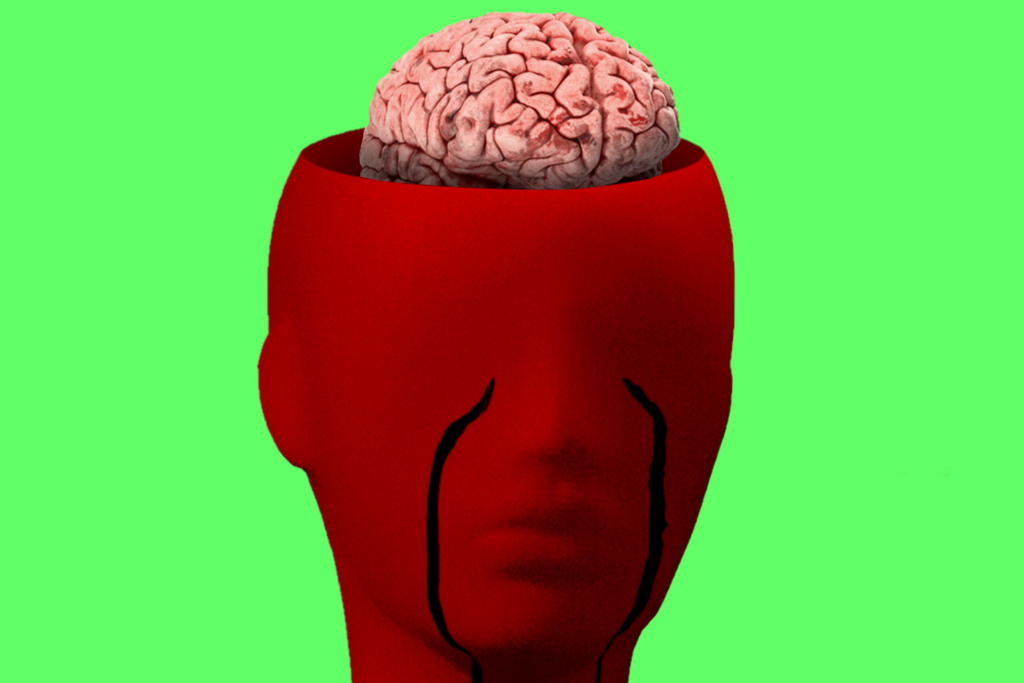Hangovers are different for everyone. Some people wake up blissfully and go about their day, while others fail to keep their food down. Then there are those who can’t remember the night before, becoming riddled with fear as a consequence. Experiencing anxiety when hungover – now commonly known as ‘hangxiety’ – is an increasingly-discussed phenomenon. But what is it, exactly?
Research shows that hangxiety affects around 12% of individuals, with feelings of dread setting in after drinking. In order to understand hangxiety, it is important to start by knowing what a hangover actually is. “A hangover is a combination of negative mental and physical symptoms, which can be experienced after a single episode of alcohol consumption, starting when your BAC [Blood Alcohol Concentration] approaches zero,” says Dr Craig Gunn, a lecturer in psychological sciences at the University of Bristol.
Gunn explains that a range of physiological processes are influenced by alcohol, leaving the body in a state of “physiological stress”, including increased levels of the stress hormone cortisol and reduced brain activity involving the bodily function hormone dopamine. These physiological processes, he says, play an important role in “cognitive and/or emotional processing.”
Gunn says that, although anxiety is known to be a common facet of hangovers, research has not yet specifically identified what causes hangxiety. “At the moment, it is unclear what underlying mechanisms may give rise to hangxiety, but it is possible that there is a link between the cognitive and emotional effects of hangover,” he says. “Regulating emotions relies on the higher order processes that are known to be influenced by a hangover, such as problem-solving and difficulties in regulating emotions, which may be linked to hangover-related mood disturbances.”
Some research suggests that hangxiety might be influenced by a person’s personality traits, like shyness. Dr Celia Morgan, lead author and professor of psychopharmacology at the University of Exeter, wrote on the university website that drinking to ease anxiety in social situations might have “rebound consequences” the following day.
David Nutt, professor of neuropsychopharmacology at Imperial College London, says that drinking alcohol can cause anxiety because the brain’s gamma-aminobutyric acid (GABA) receptor is affected. The GABA receptor is a neurotransmitter that sends chemical messages from the brain to regulate the body’s nervous system. “To offset intoxication, the brain reduces GABA receptor function which is then too low in withdrawal, which leads to anxiety,” Nutt explains.
A common theme with hangxiety is the fear of not remembering the events of the night before. Nutt says this memory loss occurs with high doses of alcohol, which blocks our glutamate receptors – another neurotransmitter. When we are under the influence of alcohol, our brains receive less chemical messages around memory.
Why some people are more likely to have hangovers than others is an active research topic, says Gunn: “We know there can be great variability in the experience of a hangover, with around 8% of people being ‘hangover-resistant’, i.e. only experiencing fatigue or mild symptoms. But some individuals report that hangovers can become a ‘bonding exercise’ where they ‘all suffer together’ and reminisce about the previous night,” he says.
In terms of how ‘hangxiety’ can be prevented, Gunn says there are many known ways a person can reduce feelings of anxiety, such as meditation or self-care, but there is little research directly examining the effectiveness of these techniques during hangovers. One possible method for the future, however, could be the wide-spread shelving of Nutt’s synthetic alcohol: Alcarelle, also known as ‘Alcosynth’. Nutt says that his team of researchers predict the drink will be hangover-free. “So far, with our botanic version Sentia, we have had no reports of hangovers,” he says, also warning that alcohol dependency can emerge from hangxiety: “Hangxiety can lead to people drinking more alcohol to overcome anxiety, which can lead to dependence.”
So, when it comes to hangxiety, more research still needs to be done. However, the good news is that scientists are delving further into why only certain people experience it. To avoid a hangover and hangxiety altogether, Gunn advises “drinking in moderation or not at all”. All the more reason to go dry, then.
Featured picture: Gaspar Uhas on Unsplash, Picture editor: Charlotte Doyle

